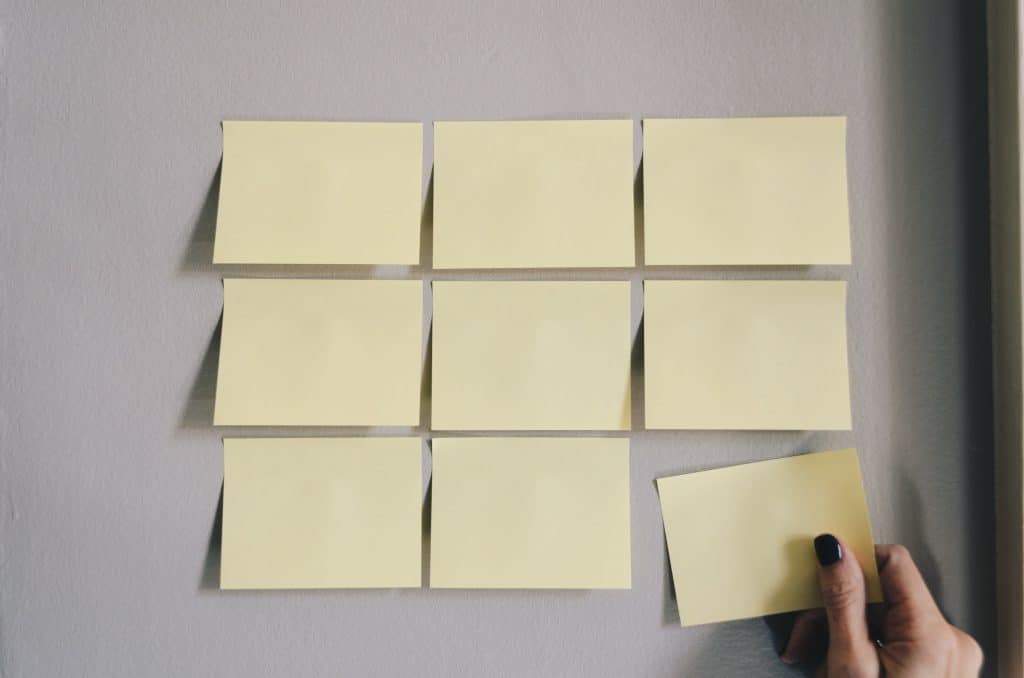We are constantly interrupted by something from work: e-mail, calls, conversations of colleagues and even our own thoughts. How can one concentrate on important tasks in these conditions, protect oneself from information fatigue and allocate time correctly? Here are 10 tips to help you cope with distractions and be more productive.
Single-tasking
First rule: Concentrate on one thing only. We are all often distracted because modern society has unrealistic expectations of us. They want us to consume oceans of information without stopping. We must be constantly available to her. Many are responding to this alarming increase in demands by focusing on multiple tasks at once. And this approach does not do us good.
We suffer from a fundamentally incorrect stereotype: they say, it is necessary to do several things at the same time in order to cope with the burden of modern problems. But multitasking tactics are usually confusing.
It’s hard for us to concentrate. Our attention is scattered. We become impolite. Our productivity is declining. We are losing control over the surrounding reality. We pretend to be doing a lot. Why are we pretending? Because our brains are incapable of fully working on more than one task at a time. Any neurophysiologist will confirm this.
“Here and now”
Senseless worries about the events that have already taken place or groundless worries about the future are the main and tireless plunderers of our time. We also get in the way of thoughts about what others will say.
The first step towards overcoming all of these obstacles is to achieve full awareness. Notice to yourself what your thoughts revolve around. Is this some kind of specific “splinter” from the past? Or have you formed a habit of worrying about the twists and turns that may await you in the future?
Remind yourself that such thoughts are not only useless, but also counterproductive: they prevent us from being present “here and now.” We are unable to change the past, predict the future, or establish control over other people. At this particular moment, we can only focus on solving a specific problem, which will make a positive contribution to our life, our work and the reality that rages around us.
To-do lists

When we try to remember all the things that we have to do in the foreseeable future, this often turns into an additional stressful load. But if we put the list of tasks on paper, then we take off the burden of fears that we might forget something.
A person is able to simultaneously keep in memory 7-9 cases. Making a list frees up mental resources so that you can focus on one specific task and not be distracted by worrying thoughts about other responsibilities.
By using lists, we can sort and structure a seemingly overwhelming mountain of tasks, focus on the most relevant one, and maximize efficiency.
The ugliest frog
Mark Twain once said that if you eat a frog in the morning, the rest of the day promises to be wonderful, since the worst for today is over. Your “frog” is your biggest and most important job, the one that you most often put off. However, it is she who at the moment will positively affect your achievements, and most importantly, your life.
The first rule of eating frogs: of the two suggested, you should start with the nastiest.
In other words, if you have two important jobs to do, start with the larger, more complex, and most important. Train yourself to get down to business without delay, to bring it to the end, and only then move on to another.
“25 minutes”
To reduce the temptation to postpone a task, each active phase of the project should take no more than 25 minutes.
This technique involves breaking the task into 25-minute periods, the completion of which is tracked by a timer. Each such period is followed by a short break. After four periods of work, a longer break follows.
The technique is especially effective when you need to do something you don’t want to do at all. When we know that we will work on a task for 25 minutes, and as soon as the timer rings, we can distract ourselves, it becomes psychologically easier to do the work.
Distractions

You must create a positive work environment for yourself that is conducive to being productive. Eliminate all possible interference. If you are having a hard time working on a project or task, distractions are just excuses for you to stop.
The internet, chatting colleagues, phone calls, pop-up e-mail notifications all contribute to putting you off work. Eliminate all distractions for at least 25 minutes and get busy.
How to talk to colleagues
In most work teams, it is impossible not to be distracted. It’s hard to get back on track if the conversation you were interrupted is out of control and you don’t know when it’s over. Therefore, you must immediately set the time frame. The best way to do this is to announce what you are currently doing to the person heading towards you, and then ask targeted questions. Here are some examples:
“I’m just trying to clear my mail. Are you visiting me for a little while or should you make an appointment for another time? “
“I have to make some phone calls. Do you want to discuss something specific or can we talk later? “
“I’m going to a meeting in about five minutes. Can you briefly tell me your problem in half a minute, or is it better if I call you after the meeting? “
The magic word “no”
Why do we agree to lunch with a friend when we are busy with an important project? Taking on additional responsibilities at the request of the boss, despite the fact that we were going to devote more time to the family? We come to the aid of a neighbour, even if it interferes with our plans? It’s simple: we are afraid to let people down or ruin relationships.
But we forget that we have a choice. You should not turn your own life into chaos, endlessly solving other people’s problems. Say no and people will start to value your time. And you don’t have to regret your pliability every time.
From now on, try to say no to all insignificant and “problematic” requests, and use the free time to complete a more important task. Refuse clearly but politely. “I’m flattered that you thought of me, but I’m afraid the download won’t allow” or “I’d really like to, but I’m awfully busy.” These forms of refusal will allow you to maintain a warm relationship with the interlocutor and get rid of unnecessary small tasks that “litter” your day.
Diversity

Doing the same thing day after day can get terribly boring. Tired of monotony, we start to get distracted at every opportunity. To avoid this, design different modes for different days of the week.
This is exactly what Jack Dorsey, the creator of Twitter, does. His every day has a specific theme. Monday is for meetings and company management. Tuesday is dedicated to product development. Wednesday is dedicated to marketing, communications and development, while Thursday is dedicated to communication with developers and partners. Friday is the day of the company and its culture.
This routine helps you stay calm in the midst of chaos. Every day, Dorsey focuses all her efforts on one topic, rather than spraying it over several tasks. His work week always follows these rules, so it is easy for colleagues and partners to adapt to him.
Checking mail
Schedule what time you open your email every day. For most people, the best option, least of all interfering with their workflow, is to check incoming mail four times a day and set aside no more than 15 minutes for each “session”.
1. First thing in the morning. Most people start their day by checking their emails to make sure they haven’t missed anything urgent.
2. Before lunch break. Lunch time is a natural pause in your business activity; to make this time more productive, you can check your email.
3. Mid-afternoon. This is another natural pause when you need to take a break or are about to leave for a business meeting.
4. End of the working day. If you free up the inbox folder as much as possible before leaving your workplace, then the next morning you will immediately go to viewing new messages.
You can also read:
